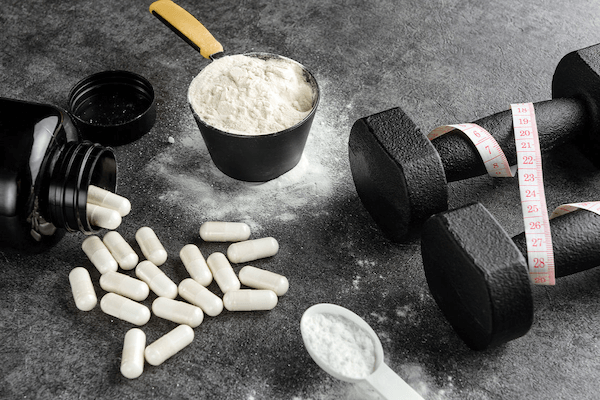Starting, improving, and maintaining a healthy lifestyle can be overwhelming, especially when habits like eating before bed could be holding you back.
MyFitFoods knows that small changes lead to big results and we've been fortunate to share in many of these successes with our clients. These experiences fuel our love for sharing simple, powerful Fit Tips designed to educate and motivate!
So, what if something as simple as eating dinner one hour earlier or avoiding late-night snacks could unlock major improvements in weight loss, energy, and mood?
If that’s true—(spoiler alert: it is!)—when is the optimal time to stop eating before bed?
Is it three, four, or even five hours before?
If you’re like me and late-night snacking is your weakness, then you know this can be a tricky one…
But don’t worry—we got this Fit Fam! There’s good news ahead, and the science behind when to eat is both fascinating and motivating for anyone looking to improve their health.
When to Stop Eating?
Estimates vary, but the general consensus is to stop eating before bed about three hours prior to laying down—though there’s some flexibility of about an hour on either end.
However, as we’ll explore below, there’s compelling evidence suggesting that three hours before bed is the ideal cutoff for maximizing health benefits tied to high quality sleep.
MyFitFoods readers know that when it comes to health, there’s rarely a one-size-fits-all approach. That said, one general maxim to keep in mind is:
Do not go to bed too hungry or too full.
Digestion
Digestion is the process of breaking down food into smaller particles, allowing the body to extract nutrients and convert food into energy. This process demands a significant amount of resources, and the time it takes to fully digest a meal or even a snack depends on multiple factors including:
Individual Traits – Age, sex, and overall health
What You Eat – Proteins and fats take longer to digest, while simple carbs break down quicker
Lifestyle – Diet, exercise, and stress levels
On average, digestion takes about five hours to complete – So consider that there’s a five-hour period between your last bite of food and the beginning of your fasted state. When you eat, you signal to your brain, organs, and gut that it's time to get to work. Digestion is an energy-intensive process that demands a lot from the body.
If you are eating before bed—just as your internal clock is preparing your physiology to slow down—you create a contradiction that confuses the body.
Our internal clock, otherwise known as the –
Circadian Rhythm
– is a natural 24-hour cycle embedded deep within our DNA. The circadian rhythm primarily regulates our sleep and eating patterns. This internal clock has guided humans (and all living beings) through millennia, helping us adapt and thrive in our environments.
One powerful example of this biological clock – as explored in this Fit Tip – is how our bodies release cortisol in the morning to give us a natural energy boost to start off the day.
Our circadian rhythm also plays a key role in regulating:
Sleep-Wake Cycle - informing when we naturally feel alert and sleepy
Body Temperature - core body temp lower at night higher during the day
Mood - disruption leads to destabilized mood
Hormone Release - influences timing and amount
Moving forward, we’ll specifically explore the relationship between the circadian rhythm, hormone release, and eating before bed. There’s a fascinating set of facts that may make you want to reconsider those late-night munchie habits— as it has for me.
The relationship between these three factors indicates that –
When We Eat Matters.
If we ate the exact same meal for breakfast, lunch, and dinner, our blood sugar response would vary significantly after each meal. But why?
The answer lies again in our circadian rhythm. Our sensitivity to insulin is lower in the morning and higher in the evening, meaning that when you eat breakfast, your blood sugar levels won’t spike nearly as much as they would if you ate the same meal for dinner.
For a while, this observation puzzled scientists and after extensive research, they discovered that the unexpected culprit was none other than –
Melatonin!
This powerful hormone, produced in the pineal gland (sometimes called the “third eye”), helps regulate the sleep-wake cycle. Melatonin is released about three hours before sleep—thanks to our circadian rhythm.
This isn't commonly known – but when melatonin is released it binds with receptors in the pancreas signaling that it's time to stop producing insulin. Insulin is a hormone produced in the pancreas to help regulate blood sugar levels by moving sugar from the bloodstream into cells all around the body.
In simple terms, if you eat after your body has stopped producing insulin, your blood sugar levels will spike because glucose (sugar) isn’t being properly absorbed by your cells.
At night time high glucose level, or hyperglycemia, can lead to:
Poor sleep – Increased mental and physical alertness
Frequent urination – As your kidneys work overtime to filter excess glucose
Dehydration – High blood sugar pulls water from your tissues
Headache and nausea – The dreaded sugar crash
While these may seem like minor inconveniences relative to how amazing late-night snacking can be – just wait until you learn how high blood sugar before bed impacts –
Human Growth Hormone.
HGH – You're going to love this stuff!
Human growth hormone (HGH) is the ultimate fat-burning and anti-aging hormone— go on and thank your pituitary gland for this one. While it's true that HGH production peaks during puberty (when we're growing the most), our bodies continue to produce this powerhouse hormone throughout our lives.
HGH levels remain low during the day, but at night we experience a massive spike in HGH, especially within the first 60–90 minutes of sleep.
Unfortunately however going to bed with high blood sugar significantly reduces the amount of HGH released:
“In healthy people, HGH release is inhibited by hyperglycemia (high blood sugar) and stimulated by sleep, stress, exercise, hypoglycemia (low blood sugar), and amino acids.” (1)
To maximize your body's natural HGH boost, keeping blood sugar levels in check before bed is one of the simplest ways to facilitate the benefits of this amazing hormone.
Sleep, Metabolism, and Fat Gain
It’s been long believed that metabolism—the process of burning calories for energy—slows dramatically during sleep due to hours of prolonged inactivity. This assumption intuited that calories consumed before bed aren’t burned as efficiently as those eaten earlier in the day.
While this is technically true, recent research indicates that metabolism actually changes very little during sleep:
“It is believed that during normal sleep, the metabolic rate reduces by around 15% and reaches a minimum in the morning in a standard circadian pattern.” (2)
Good news – eating before bed isn't an automatic recipe for weight gain.
Here’s what does lead to weight gain:
when calories consumed exceed calories burned.
Live a Little
MyFitFoods is powered by real people living real lives. We’re not here to judge or condemn the habits that can make life so enjoyable and we certainly know eating before bed can be one of those little habits.
Late-night eating can be fun, festive and social – as well as extremely necessary – because after all, we’re not meant to go to bed too hungry either.
The goal is to equip our Fit Fam with the knowledge to make informed choices about how eating impacts the body.
To recap, consistently going to bed with high blood sugar due to late night eating can erode:
Circadian rhythm integrity
Sleep quality
Human growth hormone production
And let’s not forget—it’s not just when you eat, but what you eat.
At MyFitFoods, we make clean, high-quality, delicious meals accessible and affordable. With hundreds of nutrient-rich options, we’re here every step of the way to support your short-term goals and long-term gains.
Stop by any of our locations today to find out for yourselves.
And while you're at it check out our meal plan giveaway—happening this month and all year long!




